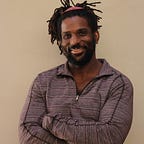Can I be Deported for a Ticket?
When the man stepped in front of my electric scooter and waved me down, I figured something had fallen out of my pocket, or I forgot to zip up my backpack. So, I stopped the vehicle, smiled, and said, “Shalom, what’s up?”
“You can’t ride on the sidewalk here,” he told me, “only on the road or the bike path.”
“No problem, I’ll move.” I didn’t think it was a big deal, it was a block on HaShalom that didn’t have a bike path, but I had just rented the scooter and could see the bike path on the sidewalk 50 meters ahead. So instead of moving to the road or pushing the scooter I hopped on and started rolling.
“Give me your ID,” he said as he pulled out a ticketing machine. And my heart almost jumped out of my chest. My ID was not like everyone else’s; it was temporary. I was not a citizen, just a resident. And if I got a ticket, I might never become a citizen.
Because I was on a probationary period and had promised the government that I would not break the law. The government didn’t clarify what breaking the law meant — they were so opaque that they wouldn’t even tell me the length of my probationary period.
But after the treatment I had received over the previous four years — lies from government officials, interrogations and threats, and being denied the right to register as married — I was terrified that a ticket could be used as a reason to further postpone, or deny, my application for citizenship in the Jewish state.
I tried to explain that the bike path was right behind him. I tried to apologize and said I wouldn’t do it again. I tried begging for mercy. Then I noticed another man step in front of a cyclist and realized it was hopeless, this was a ticket trap.
The Officer returned my ID with a ticket for 250 shekels. I stood for a moment, frozen, but my mind continued to race. Had I screwed up everything by carelessly riding on an electric scooter? Should I call my lawyer? Should I preemptively contact the government?
I walked the scooter back to the parking spot and used the app to end my ride. As I walked away, the dread followed. The dread that had been following me for years as I battled for citizenship. My feet dragged as the mistake added to the weight pulling my consciousness deeper into the void of despair.
Would this fight ever end, or worse, would it end in tears?
Every day that weight pulled me down, consuming my thoughts and distancing me from my friends and family who had never experienced this torture. At my next visa appointment the ticket didn’t wasn’t discussed. But I was once again denied any information regarding how long I would be forced to live with the fear of a stranger instead of the stability of a citizen.
That’s when I knew I couldn’t keep living with the fear. I had to fight back. I declared a hunger strike, finally forcing the government to set an end date for my nightmare. Just over a year later I became a citizen of Israel.
But I will never forget the fear. The fear of losing my status. The fear of being deported. The fear of losing my home. The fear that an insignificant mistake could ruin my life.
Which is why I can never forget the asylum seeker. Hobbes argued that the social contract allows an individual to leave a solitary, poor, nasty, and brutish state of nature and enter into civilized society. But no contract exists when you are not a citizen of the civilized society in which you live. Your safety and security depend on the support of citizens — because society owes you, the stranger, nothing.
Because I know the heart of a stranger, a heart constantly filled with fear, I will not support oppressing the strangers in my society. Instead, I love the stranger because I was a stranger.
And every Jew is commanded to do the same. At our Passover Seders we read aloud, “In each and every generation, a person is obligated to see himself as if he left Egypt.”
The purpose of the Seder is for you to understand that fear, so you can live the verses “You shall not oppress the stranger, for you know the feelings of the stranger, having yourselves been strangers in the land of Egypt.”(Exodus 23:9) “and you must love the stranger because you were strangers in the land of Egypt.”(Deuteronomy 10:19)
So this Passover, don’t just say the words, feel the fear. And help alleviate the fears of people who live this reality every single day. You can do that by donating to the Africa Student Organization in Israel, which helps African Asylum seekers realize their educational and career dreams and become change ambassadors in their communities.
_______________
Originally published in the Jewtina y Co. Passover Supplement 2023
If you enjoyed my writing, you should sign up for my weekly newsletter: Shlosha D’varim — Every Friday, I send out an exclusive email with the three most meaningful and valuable things I’ve discovered (or rediscovered) that week.
